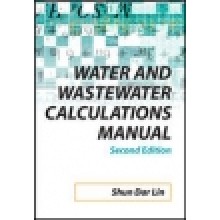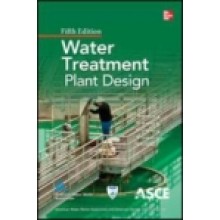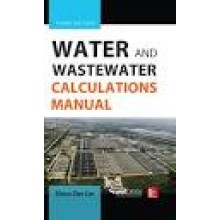Sustainable Water Engineering: Theory and Practice
Quantity:
-
Add to Compare
Ensuring safe and plentiful supplies of potable water (both now and for future generations) and developing sustainable treatment processes for wastewater are among the world’s greatest engineering challenges. However, sustainability requires investment of money, time and knowledge. Some parts of the world are already working towards this goal but many nations have neither the political will nor the resources to tackle even basic provision and sanitation. Combining theory and practice from the developing and developed worlds with high- and low-tech, high- and low-cost solutions, this book discusses fundamental and advanced aspects of water engineering and includes:
# Water resource issues including climate change, water scarcity, economic and financial aspects
# Requirements for sustainable water systems
# Fundamentals of treatment and process design
# Industrial water use and wastewater treatment
# Sustainable effluent disposal
# Sustainable construction principles
With integrated theory, design and operation specifications for each treatment process, this book addresses the extent to which various treatment methods work in theory as well as how cost effective they are in practice. It provides a nontechnical guide on how to recover and reuse water from effluent, which is suitable for those in water resource management, environmental planning, civil and chemical engineering.
Contents
Chapter 1: Water Crisis
1.1 Water Resource Issues
1.2 Climate Change and Its Influence on Global Water Resources
1.3 Protection and Enhancement of Natural Watershed and Aquifer Environments
1.4 Water Engineering for Sustainable Coastal and Offshore Environments
1.5 Endangering World Peace and Security
1.6 Awareness among Decision Makers and the Public across the World
1.7 Criteria for Sustainable Water Management
1.8 Water Scarcity and Millennium Development Goals
1.9 Lack of Access to Clean Drinking Water and Sanitation
1.10 Fragmentation of Water Management
1.11 Economics and Financial Aspects
1.12 Legal Aspects
Chapter 2: Requirements for the Sustainability of Water Systems
2.1 History of Water Distribution and Wastewater Collection
2.2 Integrated Water Management
2.3 Sewerage Treatment and Urban Pollution Management
2.4 Conventional Water Supply
2.5 Conventional Wastewater Collection Systems
Chapter 3: Water Quality Issues
3.1 Water-Related Diseases
3.2 Selection Options for Water Supply Source
3.3 On-Site Sanitation
3.4 Water Quality Characteristics of Potable Drinking Water and Wastewater Effluents
3.5 Standards and Consents
3.6 Kinetics of Biochemical Oxygen Demand
3.7 Water Management for Wildlife Conservation
3.8 Water-Quality Deterioration
Chapter 4: Fundamentals of Treatment and Process Design, and Sustainability
4.1 History of Water and Wastewater Treatment Regulatory Issues across the World
4.2 Design Principles for Sustainable Treatment Systems
4.3 Preliminary and Primary Treatment
4.4 Secondary Treatment
4.5 Tertiary Treatment
4.6 Emerging Technologies
4.7 Residual Management
4.8 Portable Water Purification Kit
4.9 Requirements of Electrical, Instrumentation and Mechanical Equipment in Water and Wastewater Treatment to Achieve Sustainability
Chapter 5: Sustainable Industrial Water Use and Wastewater Treatment
5.1 Sustainable Principles in Industrial Water Use and Wastewater Treatment
5.2 Industries with Low Dissolved Solids
Chapter 6: Sustainable Effluent Disposal
6.1 Dissolved Oxygen Sag Curves, Mass Balance Calculations and Basic River Models
6.2 Disposal Options and Impact on Environment
6.3 Sustainable Reuse Options and Practice
Chapter 7: Sustainable Construction of Water Structures
7.1 Sustainable Construction – Principles
7.2 Intake Structures
7.3 Treatment Plants
7.4 Water Storage and Distribution Systems
7.5 Wastewater Collection and Disposal System
Chapter 8: Safety Issues in Sustainable Water Management
8.1 Health, Safety and Sustainability
8.2 Safety of Consumer versus Operator
8.3 Safety of People and Animals other than Consumers and Operators
8.4 Safety Issues during Construction
8.5 Chemical Handling and Storage
8.6 Safety during Water/Wastewater Treatment Plant Operation
8.7 Disaster Management
Index
Write a review
Your Name:Your Review: Note: HTML is not translated!
Rating: Bad Good
Enter the code in the box below:
Copyright © 2014 Engineering Standards Bureau. All Rights Reserved.
Developed By Zoom Into Web






